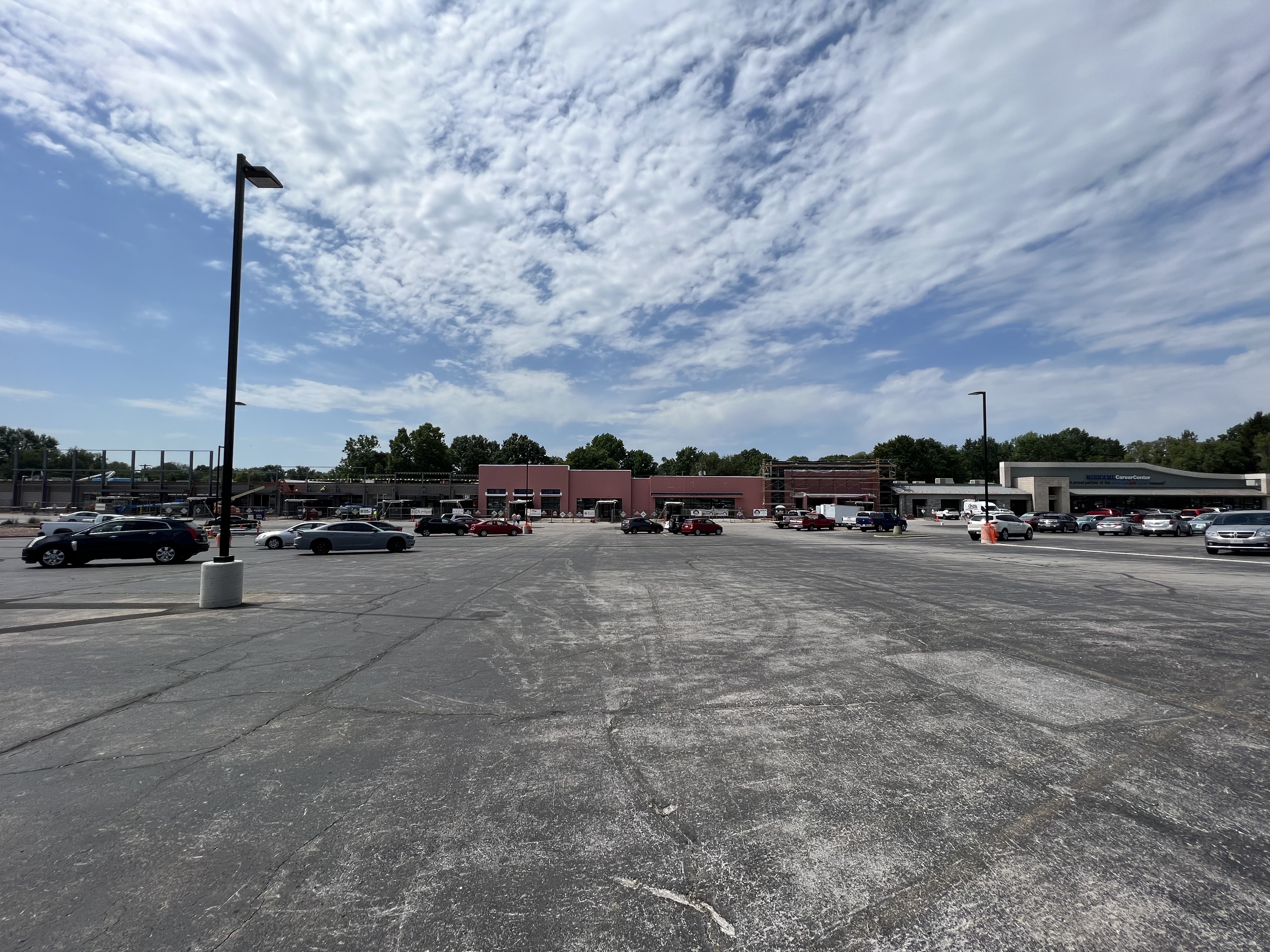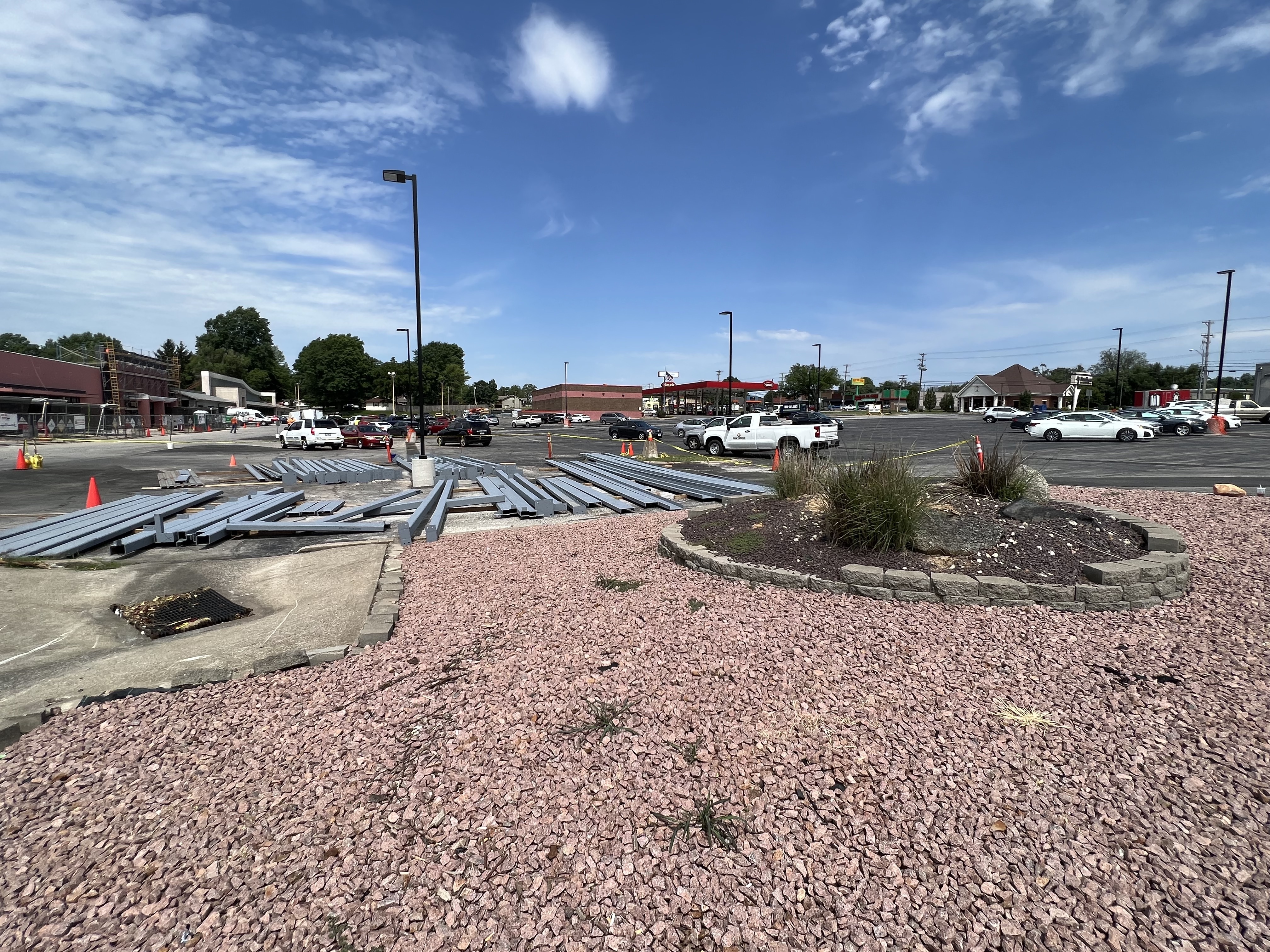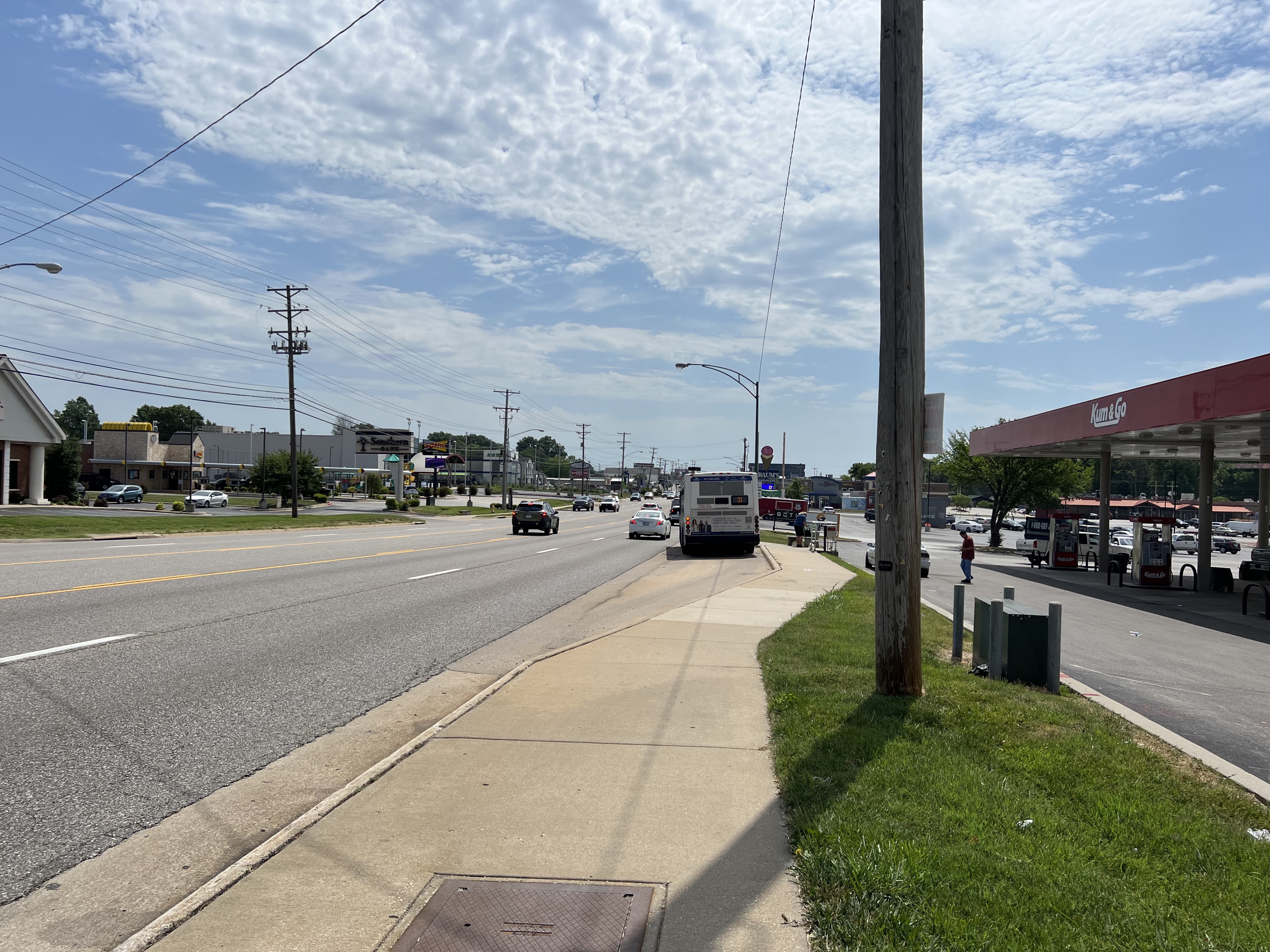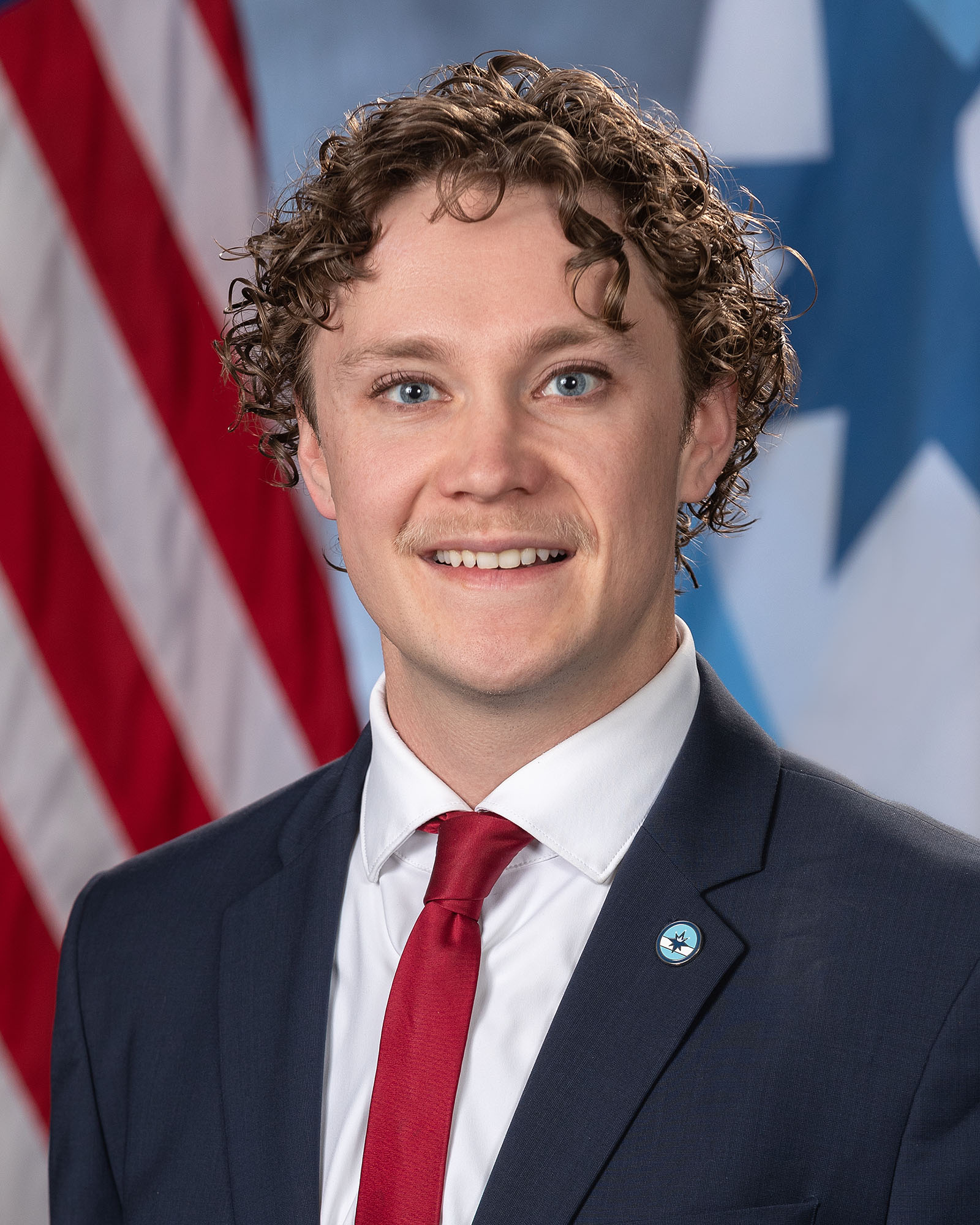Editor's Note: The story has been updated to include the names of the developers.
The Springfield City Council approved a project agreement, which includes a new sales tax, for the Southern Hills Shopping Center despite the strong opposition of two councilmembers.
Under the agreement adopted June 26 — which was made between the city, the developers and the newly-established transportation development district — the cost of stormwater improvements, new connections to public roads and construction of sidewalks and parking lots will be reimbursed to the developer through a 1-percent tax on retail sales made within the district.
The City Council passed the agreement with a 5-3 vote, following objections by council members Craig Hosmer and Brandon Jenson. Hosmer and Jenson cited concerns over what they say are the project’s minimal public benefit and its murky alignment with state laws.
“I think we’re getting a little bit creative trying to find ways to give public dollars to private developers,” Hosmer said. “I think it’s not a proper reading of statute and I think it puts us in a precarious situation.”
What is a transportation development district?

While the developers required the city’s approval to impose a 1-percent sales tax within the district boundaries, the formation of the development district was established by petitioning the Greene County Circuit Court, as required by state law.
The purpose of a transportation development district is to “to fund, promote, plan, design, construct, improve, maintain, and operate one or more projects or to assist in such activity.”
According to Section 238.202 of the Missouri Revised Statutes, a TDD project may include, “any bridge, street, road, highway, access road, interchange, intersection, signing, signalization, parking lot, bus stop, station, garage, terminal, hangar, shelter, rest area, dock, wharf, lake or river port, airport, railroad, light rail, or public mass transportation system and any similar or related improvement or infrastructure.”
The same statutes further state the project is contingent upon approval of the submitted plans by the local transportation authority which, in this case, is the City of Springfield.
Upon completion of the project by the district, ownership should, in accordance with the contract, be transferred to the local transportation authority for maintenance, according to Section 238.275 of RSMo.
However, under the Southern Hills agreement, ownership of the project will not be transferred to the city, but is constituted through other means.
City staff recommends approval of agreement for project estimated to cost $2.89 million

A private development constructed in the early 1960s, the Southern Hills Shopping Center is on the south side of the 2900 block of East Sunshine Street. The Southern Hills Shopping Center Transportation Development District was established in December of 2022.
The developers of the property are listed as the Southern Hills Plaza LLC and the Southern Hills Investment Trust LLC, for which Curtis Jared and Timothy O’Reilly are the registered agents, respectively.
While the strip mall is currently undergoing building facade renovations, the transportation development district sales tax will only reimburse the developers for parking lot and infrastructure improvements detailed in the agreement.
Those improvements are provided in a general description of the project:
- Construction of certain portions of new connections to public roads within and/or adjacent to the boundaries of the proposed district;
- Stormwater improvements within and/or adjacent to the proposed district;
- Construction of sidewalks and pedestrian pathways within and/or adjacent to the proposed district;
- Construction of new driveways and parking lots within and/or adjacent to the boundaries of the proposed district;
- Certain grading, drainage, pavement, curbing, gutters, sidewalks, storm water facilities, structures (including any architectural treatments related thereto), signage, striping, lighting, traffic signals, landscaping, irrigation systems, utility relocation, or other similar or related infrastructure or improvements.
The estimated cost of the project is $2.89 million, and is expected to generate between $460,000 and $2.74 million over its life cycle in general sales tax revenues.

City staff estimates the total valuation of the property could increase by 30 percent within 5 years of the project’s completion and the taxable sales per square foot could potentially double.
A temporary easement and maintenance agreement between the developers and the transportation development district could be amended following the project’s completion if the project costs are reimbursed before the end of the contract’s terms.
The easement will provide the shopping center’s parking lot for public use for the entirety of its “reasonably expected useful life,” which an engineer determined is 20 years.
City staff ultimately recommended approval of the project agreement to council members.
Amanda Ohlensehlen, the director of Springfield’s Department of Economic Vitality, told council members that staff worked with the developer to determine if the project had a “substantial public benefit” and incentives aligned with city policies.
“We looked at those overarching benefits of the street frontages, the buffer yards to the residential areas to the rear of the development, as well as just overall stormwater improvement,” Ohlensehlen said. “So really, how to bring the existing property into conformance with our city code.”

Hosmer, Jenson question ‘legally dubious' project
Despite city staff’s recommendation, Hosmer and Jenson were unconvinced that this particular project met the requirements of a transportation development district outlined in state statute.
Jenson expressed concern over the public benefit the project would bring, with City Manager Jason Gage estimating that less than 5 percent of the total project cost would benefit public right-of-way, meaning the remaining 95 percent would benefit private property.
While the city may stand to have an easement on the project, the agreement outlines no path to ownership.
“We have a proposal before us that has, at best, very minimal direct public benefit in terms of expenditures under the project,” Jenson said. “And we have a project that also does not seem to clearly satisfy the requirements of the statute for ownership of property.”
Hosmer said the agreement “stretches” the statute’s definition of “project,” and pointed out some of the improvements being made didn’t necessarily conform to the definition of “project” in state laws, including landscaping and sidewalks.
“This doesn't meet the definition of project, it doesn't meet the definition of ownership being transferred to the public entity and it's not a it's not a public project — it's not even a transportation project,” Hosmer said. “I think we're trying to, again, drive a square peg into a round hole to give somebody taxpayer dollars. I think it's a misreading of the statute and I think that if we do this, you're gonna have developers in the city asking us to do this again and again and again.”
Hosmer said the agreement is a “poor example of what we should be doing for economic development” and that it’s a “bad precedent” for the City Council to set.

How the vote broke down
Zone 3 Councilmember Matthew Simpson inquired about the City Council’s role in approving the contract with the district and developers, which City Attorney Rhonda Lewsader confirmed is an entirely separate type of approval from the court, which merely established the district.
Because the city was not a party to the court’s action and has no obligation to enter into the agreement, Hosmer told his fellow council members what he believed they should be asking themselves in determining their votes.

“What we're supposed to do is look at the statute and say ‘Is this a public use?’ Which it’s not. ‘Do we get ownership?’ Which we don't.”
Jenson, while opposed to the project agreement, was supportive of the project itself. He remained concerned over the legality of the contract.
“I support this type of redevelopment and work to improve our commercial corridors and this is an area that desperately needs this help, but I can’t support a project that is as legally dubious as the one that is before us tonight,” Jenson said.
Zone 1 Councilmember Monica Horton voted alongside Hosmer and Jenson against the ordinance. With Derek Lee absent, the other five council members voted in favor of the agreement. Upon approval and adoption of a resolution by the district’s board of directors, the contract will set into motion a new sales tax in the Southern Hills Shopping Center Transportation Development District and $2.89 million in improvements.

